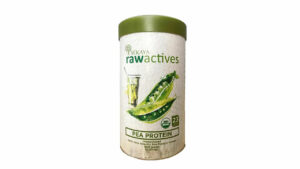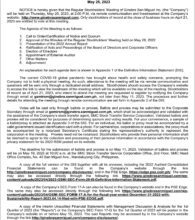Sekaya expands into plant-based diet supplements

SEKAYA, a brand under Synnovate, the Natural Products Division for United Laboratories, Inc. (or, as it is better known, Unilab; one of the most visible pharmaceuticals companies in the country), is going into diet supplements.
When we first encountered Sekaya last year, they talked to us about a line of teas, but on Feb. 4, during the Watsons Health and Wellness Expo in Megamall, the brand was there to promote their pea protein powder.
They did this by tapping “Astig Vegan” blog founder RG Enriquez-Diez, who made her own version of Vegan Chicken a la King using plant-based milk, tofu, nuts, vegan sausage, mushroom seasoning, and Sekaya Raw Actives Pea Protein in a cooking demo.
EASIER TO BE VEGAN NOWMs. Enriquez-Diez has been vegan for the past 15 years. It is much easier now than it was then, she said.
“Fifteen years ago, [going vegan was] very, very difficult. Vegan was unheard of; vegetarian, maybe. But now, especially with Sekaya for example, being a plant-based brand, it’s relatively easier than 15 years ago,” she said. For example, she uses the pea protein in her vegan version of tortang talong (eggplant omelets).
Ms. Enriquez-Diez, through her blog, has made a career of making vegan versions of Filipino favorites like kare-kare (a peanut-based stew). While many Filipino dishes are plant-forward, it can still get tricky to avoid meats and animal by-products. To get started on reducing meat consumption, she suggests substituting the meat components in a dish with tofu, mushrooms, or peas. “It keeps you full.”
HIGH PROTEIN CONTENTKimi Abapo, Marketing Head for Sekaya, explained how the protein powder was made and how to use it. “It’s made of peas; it’s really a clean plant-based source of protein,” she said. She described the taste as a bit savory, but said, “You can use this for anything, actually.” Her colleague uses it in vegan dumplings, while she herself uses it for smoothies and for sprinkling on fried rice.
A scoop is included in the packaging, which is used to measure the ideal serving size — 23 grams of protein. Ms. Abapo compares it to the protein content of a chicken breast which, according to the US Department of Agriculture’s Food Data Central, contains 31 grams of protein per 100 grams of meat.
In processing vegetables to turn them into protein sources, sometimes additives such as sugar and sodium are added (which then counteracts the “healthy” qualities). Addressing this concern, she said, “This one, you’ll notice, it has some sodium content, but that comes from peas. On a per serving level, it’s safe. It’s not anything harmful or alarming.”
Other similar products they now carry are beetroot powder for energy, spinach and kale powder for more nutrients, and barley grain for detoxification.
Ms. Abapo pointed out that younger generations are more geared towards preventive wellness. “Unilab is really going for giving access to Filipinos to healthcare. Part of healthcare is really pro-active wellness,” she said. “The core of Unilab is still medicine, right? Pharmaceuticals. But going into wellness, into lifestyle-based nutrition, is something that is in the interest of Unilab. This is the future.” — JL Garcia




